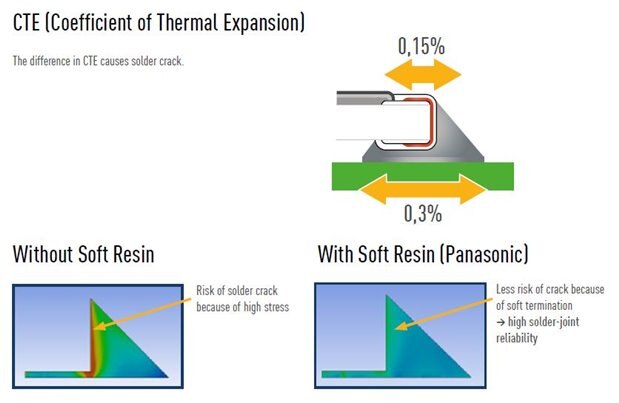Wherever we look, technological progress for the sake of a steadily improving product comfort and efficiency is characterized by electrification, automation and connectivity.
Let it be automotive innovations, industrial robotics or a new era of communication infrastructure, just to name a few, applications are taken to ever higher levels.
The more omnipresent and complex devices and applications get, the more important is their immaculate reliability – which is first and foremost depending on the components they consist of.
Although these applications are getting more digital with each new generation and many functions are defined and fulfilled by implemented software, passive components still play a very key role in avoiding any quality risks, let alone the fact that none of a device’s essential functions would work without, for example, premium quality chip resistors.
A traditional source of failure
One of the most common reasons of failures or quality problems of conventional chip resistors is solder joint crack. This means that while the resistor is still working without any problems, the solder connecting it to the PCB cracks and therefore, the resistor disconnects from the circuit. This phenomenon often happens because of the difference in the CTE (coefficient of thermal expansion) of the PCB and the resistor. Taking an FR4 PCB as an example, it would have a CTE value of about 15 ppm/K.
A chip resistor’s most prominent piece of construction is the alumina substrate - the ceramic material which dissipates the heat generated by the resistor and transfers it to the PCB. Depending on the ceramic of course, the CTE of the alumina substrate has typically a value of about 7.6 ppm/K.
No matter the resistor technology (thick film, thin film, etc.), the alumina substrate is connected to the outer terminal by the inner electrode. This connection can be made using various technologies; to name a few, sputtering, hard resin, soft resin. Due to the difference between the CTE of the alumina substrate and the PCB, the solder joint and the terminals experience high levels of stress with every temperature cycle. This in time causes the solder joint to form micro cracks which as a result cause the chip resistor to disconnect from the PCB.
Decreasing the risk
Panasonic Industry’s original technology eradicates this problem - or at the very least significantly delays it. As opposed to sputtering and hard resin, Panasonic chip resistors use a soft resin in the connection between the alumina substrate and the outer electrode. This renders the connection between these two just flexible enough so that a significant amount of the stress on the solder joint can be eliminated. Consequently, the solder joint does not crack or cracks much later in its lifetime, decreasing the risk of any failure or quality issues.
This technology is developed by Panasonic Industry and is used in every chip resistor manufactured by the Panasonic group. Thus, the Panasonic Industry chip resistors take reliability and risk-free operation to a new and unrivalled level, which is of vital necessity in an era of electronic applications being as countless, complex and capable as ever before.

